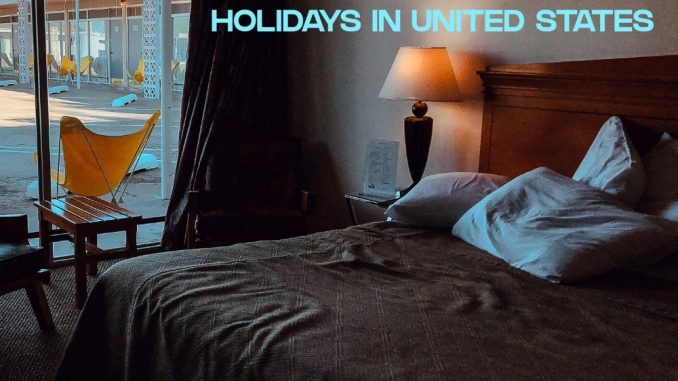
Unflinching reflections on the troubles that the United States faces in the twenty first century.
 Racism, equity, education, immigration, and LGBTQ+ rights are just some of the social justice battles that are still being fought in the USA in 2023. Adam Klein’s latest record, which has been in the making for the best part of a decade, addresses many of these issues head on. The opening track, ‘Blood On My Hands’, covers racial injustice from the point of view of a well-meaning person who comes to realise that they have been complicit in the problem by being a ‘Thousand miles away’ and thinking that ‘Somebody else should’ve stopped the blow’. The chorus offers the realisation that the fight for equality is one that needs to be shared by everybody, ‘Now I can see your destiny’s wrapped in mine, The fog is liftin’ I can see the shore’.
Racism, equity, education, immigration, and LGBTQ+ rights are just some of the social justice battles that are still being fought in the USA in 2023. Adam Klein’s latest record, which has been in the making for the best part of a decade, addresses many of these issues head on. The opening track, ‘Blood On My Hands’, covers racial injustice from the point of view of a well-meaning person who comes to realise that they have been complicit in the problem by being a ‘Thousand miles away’ and thinking that ‘Somebody else should’ve stopped the blow’. The chorus offers the realisation that the fight for equality is one that needs to be shared by everybody, ‘Now I can see your destiny’s wrapped in mine, The fog is liftin’ I can see the shore’.
‘Wait Til They Come Knockin’ comments on the injustices of the American legal system with a nod to Dylan’s ‘Desolation Row’ via the lines, ‘They’re selling postcards of the hanging at every county fair, Fibres of whip and rope upon the floor where the beauty pageant girls twirl every perfect strand of hair’, warning us that maybe the past isn’t quite as far away as we think.
The epic seven and half minute long ‘I-20’ is centred around a conversation between a father and daughter on their way to a protest for racial justice in the city of Atlanta. The Interstate 20 (I‑20) is the major east–west highway in the southern United States, which runs for 2,500 kilometres from Texas to South Carolina. In the 1950s, when the I-20 was being planned, it was deliberately designed to serve as a boundary between the Black and White communities in Atlanta, so it’s an apt name for the song given its subject. It’s also a tale of lost innocence with the father saying to his daughter, ‘Tin soldiers and Trump is comin’, It’s all he ever wanted to be, Oh my darlin I can’t protect you, But march along, Stay real close to me’. This powerful and moving song culminates with Klein, backed by the gospel style vocals of Kyshona Armstrong, Maureen Murphy, and Nickie Conley, singing the names of over 50 people who’ve recently been killed in acts of racial violence in the US.
‘People Are Callin’’ is underlain by a lush brass arrangement by Hank West. It finishes with the defiant, ‘We will be allowed to love, Allowed to dream, Allowed to stand up for our rights, We will be allowed’. ‘Ohio: Revisited’ recalls the killing of four Kent State University students in 1970, referencing Neil Young’s song and connecting the present with the past, as Klein sings, ‘Are we back in Money, Mississippi?’, where 14 year old Emmett Till was lynched in 1955, adding, ‘Did we ever go? Now we kill ’em with the boot and the knee, How did we get so low?’. The album comes to a close with ‘Bright Rails Shine’, a train journey across the US’s vast and varied landscape.
This is Klein’s first overtly political record and as such it doesn’t pull any punches. If all of American society were made up of people with Klein’s empathy and compassion, the United States would be a much better place for it.


